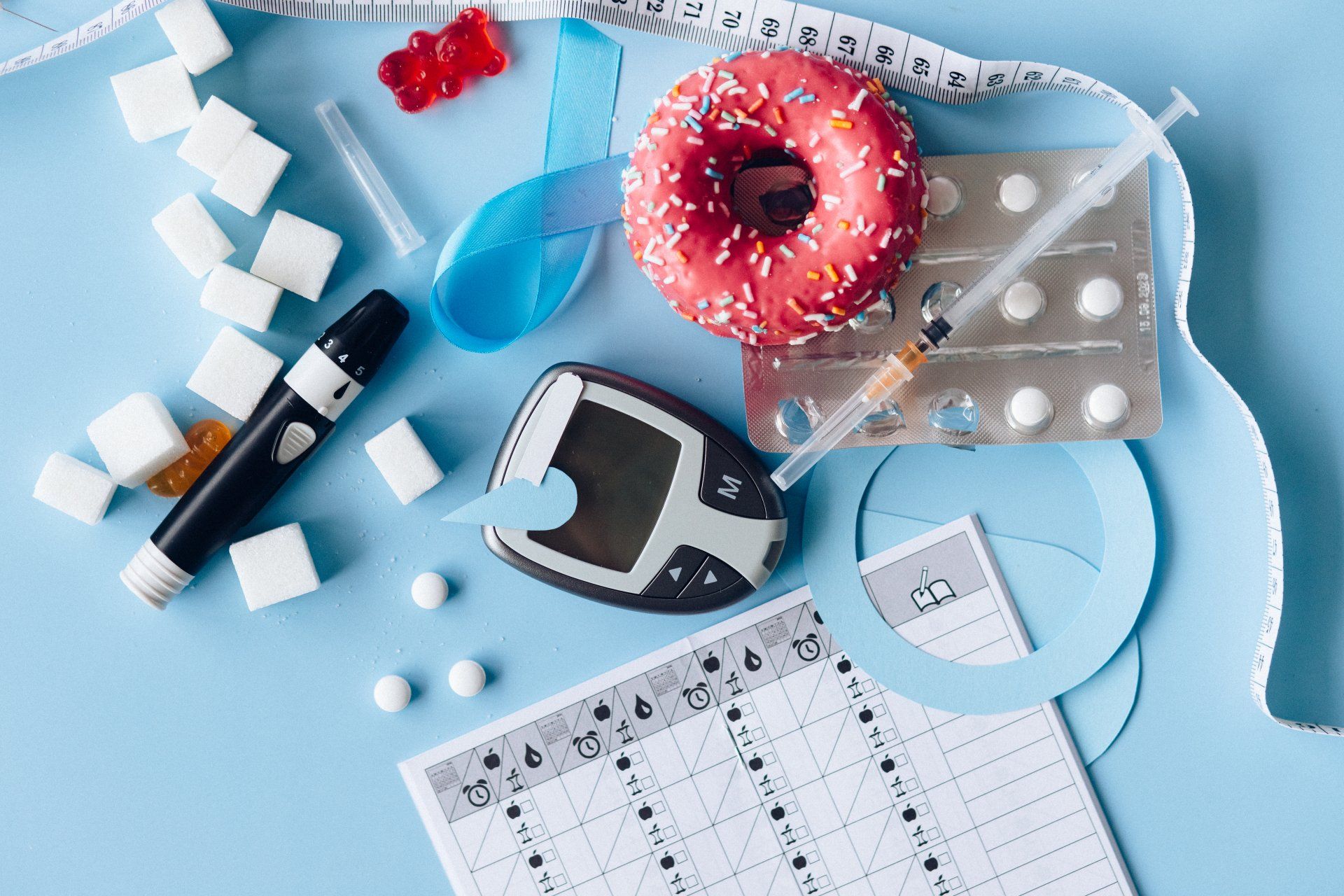Blog Layout
Reasons You May Feel Tired All the Time
DJAB • January 21, 2021
Let us look at possible areas.

Are you always feeling tired? Do you feel like each day is an effort to manage to get through? Do you know why you are so tired consistently? Well, let us look at a few areas that you may relate too, and possibly may be able to alter your existing lifestyle choices to benefit gaining more energy back into each day.
Most people wouldn’t consider daytime sleepiness to be a big deal. A lot of the time, it isn’t. But if your sleepiness is ongoing and getting in the way of your everyday life, it may be time to see the doctor.
It’s possible you’re not getting enough sleep because of an underlying health issue. Your physician can help you figure out the cause of your tiredness and how to manage it.
Many factors can be contributing to your sleepiness.
Here are some possible reasons why you may feel tired all the time and they may actually surprise you.
Dietary Choices
If you have a tendency to skip meals, you may not be getting the calories you need to keep your energy up. Long gaps in between meals can cause your blood sugar to drop, decreasing your energy.
It’s important not to skip meals. In fact, you should also eat healthy energy-boosting snacks between meals, especially when you start to feel sluggish. Healthy snack options include bananas, peanut butter, whole-grain crackers, protein bars, dried fruit, and nuts.
Vitamin deficiency
Being tired all the time can also be a sign of vitamin deficiency. This could include low levels of vitamin D, vitamin B-12, iron, magnesium, or potassium. A routine blood test can help identify a deficiency.
Your doctor may recommend taking supplements. You can also increase your intake of certain foods to correct a deficiency naturally. For example, eating clams, beef, and liver may reverse a B-12 deficiency.
Poor sleep patterns
Late nights can take a toll on your energy level. Most adults need between seven and nine hours of sleep each night. If you get into a habit of staying up late, you’re putting yourself at risk for sleep deprivation.
Practice better sleep habits to boost your energy. Go to bed earlier and take steps to improve the quality of your sleep. Sleep in a dark, quiet, and comfortable room. Avoid stimulating activities before bed, like exercise and watching TV.
If your sleep doesn’t improve with self-care, talk to your doctor. You may need a prescription sleep aid or a sleep study.
Being overweight
Being overweight can also cause tiredness. The more weight you carry, the harder your body must work to complete everyday tasks like climbing stairs or cleaning.
Come up with a plan to lose weight and improve your energy level. Start with light activity such as walking or swimming, and gradually increase intensity as your stamina allows. Also, eat more fresh fruits, vegetables, and whole grains. Curb your intake of sugar, junk foods, and fatty foods.
Sedentary lifestyle
Physical activity can also boost your energy level. A sedentary lifestyle, on the other hand, can leave you feeling exhausted and sleepy.
It has been noted that how an inactive and sedentary lifestyle has influenced feelings of fatigue in general, so get moving with increased physical activity to contribute to more energy and vigor.
It can be difficult and overwhelming for some, however, start slowly as any activity daily is better than none. Start with 10 minutes twice daily and build up to 30-45 minutes daily of simply exercises that increase your heart rate like swimming, walking, and or riding a bike. Choose to level appropriate to your fitness level.
Stress
Chronic stress can cause headaches, muscle tension, stomach problems, and fatigue.
When under stress, your body goes into fight-or-flight mode. This causes an increase in cortisol and adrenaline, which prepares your body to deal with such situations. In small doses, this response is safe. In the case of chronic or ongoing stress, it takes a toll on your body’s resources, leaving you feeling exhausted.
Learning how to control stress may improve your energy level. Start by setting limitations, creating realistic goals, and practicing changes to your thought patterns. Deep breathing and meditation can also help you stay calm in stressful situations.
Depression
When you feel depressed, lack of energy and tiredness can follow. Depression can be overwhelming, embarrassing, and carries an unwanted judgement that actually can leave you feeling worse.
It is important to discuss with your family and friends what you are going through so they too can understand. People do care, it sometimes feel like they may not, however, it often can be due to lack of knowledge in understanding exactly what you are experiencing.
If you’re experiencing depression, talk to your doctor and discuss treatment options.
Your doctor may prescribe an antidepressant or an anti-anxiety medication. You might also benefit from mental health counseling. Cognitive behavioral therapy is a type of treatment that helps correct negative thought patterns that lead to a negative mood and depression.
Sleep disorders
A sleep disorder is sometimes the underlying cause of tiredness. If your energy level doesn’t improve after a few weeks, or after you make the right lifestyle modifications, speak with your physician. You may need to see a sleep specialist.
A sleep disorder like sleep apnea can be causing your tiredness. Sleep apnea is when your breathing pauses while you’re asleep. As a result, your brain and body don’t receive enough oxygen at night. This can lead to daytime fatigue.
Sleep apnea is a serious condition. It can cause high blood pressure, poor concentration, and lead to a stroke or heart attack. Treatment involves using a CPAP machine or an oral device to keep the upper airway open while you’re asleep.
Chronic fatigue syndrome
You may feel tired all the time if you have chronic fatigue syndrome. This condition causes extreme fatigue that doesn’t improve with sleep. Its cause is unknown.
There’s no test to confirm chronic fatigue. Your physician must rule out other health problems before making a diagnosis. Treatment involves learning how to live within your physical limitations or pacing yourself. Moderate exercise may also help you feel better and increase your energy.
Fibromyalgia
Fibromyalgia causes widespread muscle pain and tenderness. This condition affects the muscles and soft tissue, but it can also cause fatigue. Because of the pain, some people with the condition are unable to sleep at night. This can lead to daytime sleepiness and fatigue.
It has been noted that the dietary choices can have a positive, and negative impact on the symptoms of Fibromyalgia. Foods high in sugars, and or refined carbohydrates actually fuel inflammatory levels which can activate pain receptors. It can be beneficial to keep a food diary and make notes on what you eat, and drink, and how you are feeling.
We can have patterns occur depending on the fuel we give our body and it's response. So, it is worth keeping a daily record to isolate responses that you find beneficial to understand. If you know what is causing the responses then you can make changes in your dietary choices that possibly may make a favourable difference.
Taking an over-the-counter pain reliever can help improve pain and sleep. Also, some people have had positive results with an antidepressant, as well as physical therapy and exercise.
Medication
Sometimes, medication can cause you to feel tired all the time. Think back to when you first noticed daytime sleepiness. Was this around the time when you started a new medication?
Check medication labels to see if fatigue is a common side effect. If so, talk to your physician. They might be able to prescribe another medication, or reduce your dosage.
Diabetes
Feeling tired all the time can also be a symptom of diabetes. When you have diabetes, your body doesn’t make enough insulin. This can cause high blood sugar, which can affect your concentration and leave you feeling fatigued and irritable.
See a physician for any unexplained fatigue that doesn’t improve. Keep in mind that fatigue can also be a symptom of other medical conditions like heart disease and cancer.
Note:
Some days are more tiring than others. It’s important to recognize ordinary sleepiness from excessive tiredness.
In most cases, excessive sleepiness can be fixed with some lifestyle changes. If you still feel worn out after trying to manage your fatigue on your own, talk to your physician. You may have a sleep disorder or another medical condition that needs attention.
Thank you for your support in reading and sharing this and hopefully, you have found it beneficial.
"Providing Better Health Through Knowledge"

Slide title
Write your caption hereButton
Slide title
Write your caption hereButton
Slide title
Write your caption hereButton
Slide title
Write your caption hereButton
Slide title
Write your caption hereButton
Slide title
Write your caption hereButton

By DJAB
•
April 8, 2022
Glutathione - Collagen - L-Carnitine - Vitamin C
Four ingredients when taken alone can certainly support the body and provide added benefits. However, combined them together and you definitely will have the opportunity to not only feel, but see improvements.
Knowledge is like adding another book to your library.
“People Helping People in Health and Wellness”

By DJAB
•
January 9, 2022
Why Detoxing is Beneficial.
Detoxification — or detox — is a popular buzzword.
It typically implies following a specific diet or using special products that claim to rid your body of toxins, thereby improving health and promoting weight loss.
Fortunately, your body is well-equipped to eliminate toxins and doesn’t require special diets or expensive supplements to do so.
That said, you can enhance your body’s natural detoxification system.
Thank you for your support in reading this article and hopefully, you have found it beneficial.
"Providing Better Health Through Knowledge"

By DJAB
•
November 24, 2021
Many people rely on quick, processed foods for meals and snacks. Since these products often contain added sugar, it makes up a large proportion of their daily calorie intake.
In the US, added sugars account for up to 17% of the total calorie intake of adults and up to 14% for children.
Dietary guidelines suggest limiting calories from added sugar to less than 10% per day.
It is believed that sugar consumption is a major cause of obesity and many chronic diseases, such as type 2 diabetes.
Here are some reasons why eating too much sugar is bad for your health.
Thank you for your support in reading this article and hopefully, you have found it beneficial.
"Providing Better Health Through Knowledge"
Disclaimer: All content and media on this website is created and published online for informational purposes only. It is not intended to be a substitute for professional medical advice and should not be relied on as health or personal advice.
Always seek the guidance of your doctor or other qualified health professional with any questions you may have regarding your health or a medical condition. Never disregard the advice of a medical professional, or delay in seeking it because of something you have read on this website.
"Copyright 2021. Dr. Joseph Ahrens and Logo are trademarks of Dr. Joseph Ahrens LLC. All rights reserved."
